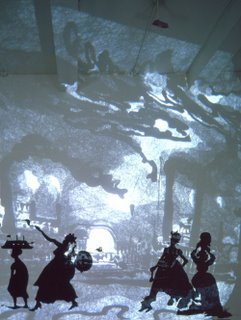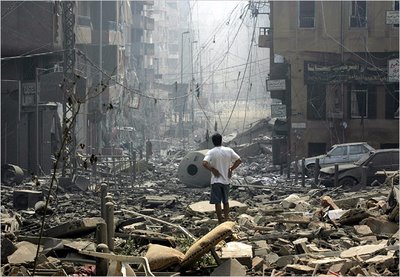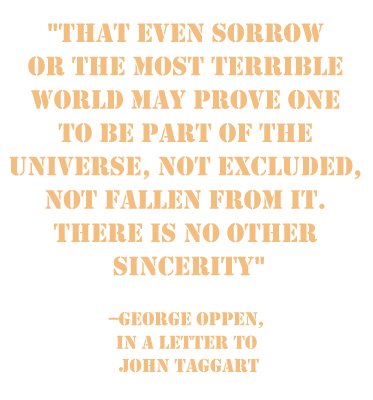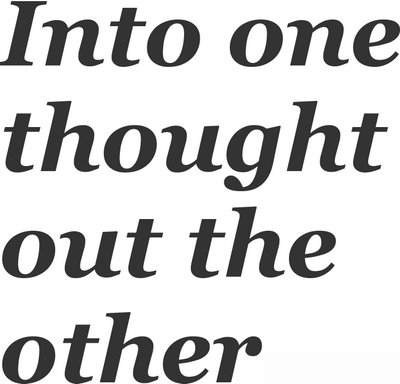Lifting the Corpse
A very large man would lie down on his back on the floor. The legs must be kept straight and rigid. Four men then tried to lift him off the floor with their thumbs placed under the shoulders right and left and on the calf of the legs right and left. Each lifter used only one of his thumbs. If the man was lifted places were exchanged. If they failed they would have their heads bashed against the floor (especially if they dropped the man!)
Pulling the Stick- Sweet Draughts
Two man sat facing each other on the floor. Legs were extended so that the soles of their shoes touched. A strong stick : a handle of a spade or pitchfork,was laid across the tops of their shoes. Both gripped the stick, one hand inside and one outside and each tried while holdi ng his legs rigid to lift his opponent off the floor even as much as an inch. After three pulls places were exchanged and the test continued similarly. Sometimes a man who was to be lifted off the floor would make his foot slip from the opponents shoe. Friends would stand on the coat tails of the person they did not wish lifted.
Lifting a Chair
A chair was gripped at the base of one of the legs by each contestant in turn in an attempt to raise it above his head. It was by no means an easy thing to do, as the old chairs were quite heavy.
Breaking an Egg
An egg was held between the contestants two hands with the pointed ends against the palms. He then tried to cr ush the egg, and generally failed.
The Stronger Hand
Two men stood facing each other, with their right hands raised against each other. Pressure was then exerted by each in an attempt to force down his opponents hand.
Wrestling-
A man would enter the house dressed in a suit of straw and challenge all present to wrestle the Connachtman.
A. A man gripped a stick with his hands at either end and tried to jump over it. Without br eaking his hold. An open razor edge upwards was used instead of a stick.
B. 12 men faced each other in two lines, six in each row. The men in each line stood about two feet apart from their neighb ours. Each player extended his two arms and gripped the hands of the man facing him. Other active men at the wake then tried in turn to jump over each pair of hands in turn, down between the lines without stopping. This was a very difficult feat to perform.
C. Two men stood with a spade handle or other stick resting on their shoulders. Two others then tried to excel each other in performing acrobatic tricks on the stick, like circus performers.
D. Two men competed to do somersault on the floor returning to a standing position.
Driving the Pigs across the Bridge. Those who arrived late at the wake house were the pigs . They are scolded for not having arrived earlier and then someone would shout “We must drive the pigs across the bridge” The bridge consisted of a number of men, who stood in line behind one another, with their shoulders bent forward. The “pigs” were then forced with blows to mount like riders, on the backs of the others; when all had mounted, they were suddenly thrown on the floor in a heap on the floor.
Riding the Wild Ass. - A rope with a noose at one end was thrown over one of the rafters of the house. The man who wished to show h is agility then grasped the other end of the rope and put one of his feet into the n oose. He then pulled on the free end of the rope and tried to raise himself high enough to enable him to kick against another rafter or couple with his free foot. The difficulty and danger of the trick came from the fact that one part of his body (the hands) was pulling against another (the foot) and he might easily fall on to the floor and injure his head or back.
Stealing the Goats- The player grabbed two sods of turf, one in either hand, and faced the floor with his hands and legs extended; only the turf sods and the toes of his shoes were allowed to touch the floor. The player's objective was a potato which lay on the floor below his face. He had to pick this up with his mouth without allowing his stomach to touch the floor or bending his arms or legs. This was difficult enough to do while uninterrupted, but it became more so when he had to reply to questions during the attempt:
Questioner: Where are you going now?
Reply: Stealing the goats from Hell.
Questioner: Swear that you are.
Reply: I swear that I am.
Lifting a horseshoe: The shoe was placed three or four inches out from the foot of the kitchen wall. The person who tried to pick it up took his stand about three feet from the wall, and h ad to pick up the shoe without bending his knees. Whenever he bent forward in making the attempt, his head would touch the wall, and he was not allowed to use his hands to help straighten himself again.
Going around Under a Table: The player would lie face downwards on a table, catching the edges with both hands. He then was required to bring his body around under the table, between its legs, and return to his starting point without touching the floor. His main difficulty was to keep the table from overturning in the process.
Walking on the legs of a Stool: A fairly long stool would be laid on the floor, legs upwards. The contestant had to mount the stool, placing his two hands on the front legs and his two feet on the back ones. To do the trick he had to walk around on the stool legs with his hands and feet until he returned to his original position.
The Donkeys and Baskets: A man lay face down on the wake house floor. Two others sat facing each other at either side of him and extended their legs across his back toward each other. Each took hold of the other's legs. The Prone man was now the donkey and the other two the baskets. His task was to rise up as a real donkey would raising the baskets on his back. Two groups of three often took part in this test each striving to be the first in comple teing it.
Spinning the Tin Box- Each of the male players was given an even number while each female got an odd number. The players sat here and there in the kitchen while a tin box was spun in the center of the floor by the man in charge of the game. As the box spun around he would call out the number of some player whose duty it then was to rush forward and catch the box before it ceased to spin. A player who failed to do so was given some penalty.
The Mock Court or The Police Game
Eight or so of the players remained in the kitchen,while everybody else went outside the door. Those who were inside then divided themselves up according to their duties in the game; one would act as judge, two as lawyers; one as court-clerk, and three or four as policemen. The police would then go outside and drag in somebody as prisoner, while the others pressed in also to hear the case being tried. The judge too k his seat, and the clerk read out the name and address of the prisoner, as well as the offense with which he was being charged. The trial then proceeded as it would in a legal court, one lawyer prosecuting, the other defending. The main source of the fun, apart from the charge itself, was to be found in the sly references made by both counsel to the private affairs of some of those present, who were dragged into the case. These mischievous,though irrelevant, hints caused great laughter, as they were understood by all. Having heard the evidence, the judge announced his verdict, which was witty and light or severe, according to how he regarded the defendant. The police had then the task of seeing that the verdict was carried out; if guilty, the defendant might be handled roughly as punishment, or even doused nine or ten times in a tub of water. If the first trial produced a good deal of amusement, as second or third would follow, until all were tired of the game.
A somewhat similar game, which involved a court-case, was the following. A man lay down on the floor, feigning illness, and a doctor would be sent for. The doctor arrived into the kitchen on horseback, the horse being two fellows clad in straw to resemble an animal. The horse would be a very wild one and, in the course of prancing around the kitchen, the doctor would be thrown down on top of the sick man on the floor. When examined, it would be found that both the patient and the doctor were dead, and the two who played the part of the horse would be tried for causing their deaths.
Building the Ship
John L. Prim has provided a garbled account of the way in which this game was played at wakes in Kilkenny over a hundred years ago. He mentions how the keel was first laid, followed by the prow and stern of the ship; then a woman, who was taking part in the game, would raise the mast with some gesture and speech that convinced Prim that the game had its origin in pagan times. His account is so unclear that it would be difficult, for want of additional details, to imagine how the game was really played.
Henry Morris has noted that his uncle had seen a similar game played about one hundred years ago in Co. Monaghan. It was a lively game, with lots of activities going on, he said; the only part he could remember was the tarring of the ship (soot being smeared on somebody). Morris said that the game died out in Farney, Co. Monaghan, before the year 1880.
A Co. Galway man has described the game , as he saw it played there. Three men sat down astride a stool, one behind the other, all facing in the same direction. The man in front was the prow of the ship; the man in the middle, the body of the ship; and the third man the stern. A fourth player stood on the floor beside them; he was the builder of the ship. He would ask the company for a hammer or sledge, which he needed for the work, and he got it-a hard sod of turf, a piece of turnip, or something like that. Having got the implement, he would walk around the stool, talking loudly to himself about his accomplishments as a ship-builder. He would then insert the right hand of the center man under the right arm-pit of the man in front, and continue to walk around the ship, striking hard blows with his hammer on the three, as he went. He would next put the left hand of the center man under the left arm-pit of the first man, striking blows all the time to make things firm. He then placed the legs of the hind pair around the body of the person in front of each, hammering away to keep the timbers from splitting. The trio would then have to lie back, as far as they could, and the builder would start to raise the mast. This part of the game was often obscene.
Another game is mentioned by Prim called Drawing the Ship Out of the Mud, but it is not described.
Building the Bridge
Twelve men or so stood out on the floor and formed into two lines of six each, facing one another. Each man took hold of the two hands of the man opposite, thus forming the bridge from which the game took its name. The bridge had now to be tested for strength. Another player mounted on the crossed hands and walked to and fro along them. Finding no apparent fault with its construction, he dismounted. Somebody would then suggest that the bridge be tested to see if it would take a flood of water through its eye. This would be done by some rogue who sluiced the legs and feet of the players with a bucketful of dirty water.
Making the Poteen
This game is both imitative and a booby-trap. Somebody who had not seen it played previously would be asked to sit on a chair or stool in the center of the floor. He would be, as it were the still. The man who was working the still would walk fussily around him, getting ready for the work, while some others remained outside the house to keep an eye out for the police or "Revenue men". As the busy preparations were at their height within, the watchers would rush in to say that the police were coming. Speedy action was now necessary; the first thing to be done was to hide the still outside in the dark. The stiller gave this order to his helpers, and they set to work with a will. Pity the poor still! The innocent fellow who simulated that was dragged out into the darkness and flung headlong into the cess-pool of the dung -hill or some equally unpleasant hiding-place from which he had to extricate himself without light or help.
Coining the Money
Another booby-trap! Counterfeit money was to be coined, as it were, and some innocent fellow was got to sit in the middle of the floor to represent the mint. The players circled around him chanting "Coin the money! Coin the money!" until somebody rushed in from outside to say that the police were approaching. The mint had now to be hidden as quickly and as disagreeably as the still in the preceding game.
Sledging
Booby-trap again! The master smith and his helpers announced that they had to make some plough-"socks", or horseshoes or something like that. A man who had no experience of the game was asked to sit in the centre of the floor to represent the anvil. As soon ass the victim was seated ,the master, and his apprentices began to thump him with their fists, as hammers, chanting in time with the blows:
"Strike him strike, strike together!
Strike, strike, all together!
Having pummeled the anvil well for a time, one of the apprentices would suddenly shout that the anvil was on fire! It had to be taken out quickly lest the forge be burned. The poor anvil was taken hold of by three or four strong fellows and dumped into the cess-pool outside, or else was douched with buckets of water.
The Kiln on Fire
In this game, players simulated a miller and his men drying corn. The floor represented the kiln. The miller would order his men to bring in sacks of corn to put into the kiln. Each man went outside and came back with a man on his back; this process went on until some twenty men, as sacks, were lying in a heap on the floor. The were left there for a while to dry, as it were, and were then turned, those underneath being placed on top. When this had been done, and the process of drying the corn was progressing well, one of the workmen would suddenly should that the kiln was on fire. The miller and his helpers would rush to pour buckets of water on the sacks, drenching all who were heaped on the floor, especially those on top. In some areas, only two players took part, the miller and his daughter.
The Deaf Miller
A player (the miller) sat on the floor, mixing soot and water in a dish with a stick. As he worked, he carried on a conversation with himself, his remarks causing great laughter among the audience. One of his mill-hands would enter carrying another player, as a sack of corn, on his back, and would tell the miller that the sack was to be ground. The miller would pretend not to be able to hear him, owing to the noise of the mill, and would finally order the helper to lay the sack down behind him. When five or six sacks had thus been deposited behind the miller, who all the while continued to mix the soot and water (to simulate grinding) and keep up his remarks in a loud voice, the helper would shout that the mill was on fire. The miller would have no trouble in hearing this and would throw the sooty water over his shoulder on top of the sacks behind his back to quench the blaze.
Lifting the Old Nag
A heavily-built man would hobble into the kitchen, pretending to be an old foundered horse, and throw himself down on the floor, grunting and complaining. Some players would gather about him , and he would ask them to raise him to his feet. Two or three would attempt this and would fail; others would come to their assistance, but even nine or ten would not be able to lift the nag. The leader of the game would then order them to remove their coats. They did so, throwing aside the coats here and there, and started to lift again, straining every muscle, but to no avail. The nag was too heavy. The leader would then order them to remove other garments, and when they had finally got rid of their socks, they would succeed in their task. At this point, some mischievous fellow would quench all the lights in the wake-house; the others would let the nag collapse on the floor and, in the darkness, set about finding their clothes, which would have been hidden away by members of the audience. Rough-and-tumble searching went on until the lights were restored, and the game was over.
Cutting the Timber
A man lay down across the threshold of the kitchen feet outside, head within. He was to represent the saw. Two players now took hold of his feet outside, while two others caught his head and should ers in the kitchen. They pulled against one another, forward and backwards, as if they were sawing wood, until one pair proved too strong for the other.
The Dry Barber; The Shaving Game
In The Shaving Game, the leader and his assistants went through the crowded kitchen of the wake-house to find out who needed a shave. They would pick on somebody whom they might dislike for some reason, and drag him out to sit on a chair in the middle fo the floor. The barbers then gathered about him and started to rub water, in which many kinds of dirt had been mixed, onto his face and head. He was powerless to resist or escape. Two would then begin to shave him with bits of stick or something, as razors. The shaving was, needless to say, an ordeal in itself, and it was finished by drenching the victim with water to get rid of the soap!
*all above desciptions of Irish Wake Games lifted directly from: http://www.bcpl.net/~hutmanpr/wakegame.html.




























